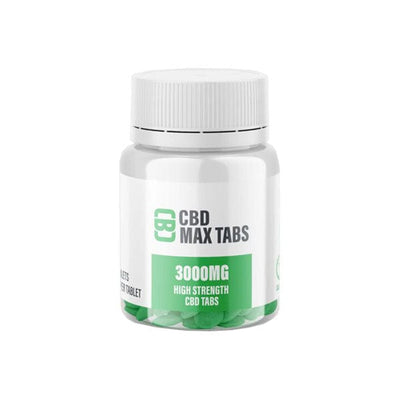Where does CBD come from?
A brief history of CBD and where it came from
If you're new to CBD and the benefits that come with CBD products, then you may be wondering where it all came from. Equally, if you have been taking CBD for a while then CBD’s history may still be a mystery to you. Here at Hemprove we like to think we know our stuff so we have done a bit of research and gathered together a brief history of CBD.
We have answered all the what, why, where and how questions so you don't have to; because knowing your stuff will always put you in the best position, to pick the right CBD product for you.
What is CBD?
The cannabis plant produces a resin that contains a number of different substances. These substances are called cannabinoids. Cannabidiol or ‘CBD’ is a type of cannabinoid chemical found naturally in the cannabis plants. Most UK, CBD does not contain ‘THC’ that cause the ‘high’ feeling associated with marijuana, so is safe for new users.
Some research has shown the core substances in CBD interact with the body’s natural Endocannabinoid system, which contains the receptors for your brain, immune system and pain responses.
The bodies receptors are tiny proteins attached to cells. The receptors receive chemical signals from different body stimuli, causing the cell to respond in a certain way. This response creates anti-inflammatory and pain-relieving effects when taking the correct product and dose.
When and Where?
Cannabidiol or CBD usage actually dates back thousands of years. It is thought by historians that the Cannabis Sativa plant, is even associated with the beginnings of agriculture around 10,000-12,000 years ago. It is recognised too by historians that the development of agriculture led to the establishment of civilisation and settlements as we know it now.
The first recorded case of CBD or marijuana use for medical purposes was reported around 2727BC in Ancient China. It was used by Emperor Sheng Neng who used a cannabis-based tea to help with a variety of health ailments including; poor memory, malaria and gout.
Much further down in history Queen Victoria was reported as being a regular user of both regular Cannabis but in particular, CBD to help alleviate menstrual cramps. This is also a reason many users turn to CBD today.
Cannabis crops
Although we focus on the wellness benefits of the CBD compound, the Cannabis plant throughout it's history has been central to many cultures development of textiles and cloth. In 4000BC, there is evidence of textiles made from Hemp used in China and Turkestan. In 850AD, there is evidence that the Vikings transported hemp rope and seeds back and fourth to Iceland. Many cultures also used Hemp to make paper, saving trees.
In the past some restrictions when growing Hemp plants have been the complete opposite of today in England, King Henry VIII actually punished farmers if they did NOT raise Hemp for industrial uses.
Change
It was only in 1839 that research began to investigate the actual effects CBD could have on the human body, in terms of it's medical application. Irish physician and researcher, William O’Shaughnessy published a somewhat controversial study at the time where he had explored Cannabis’s medical potential, particularly as a natural anaesthetic.
It wasn't until the mid-1990s, that the Endocannabinoid system was actually discovered. The ECS is vital for our overall wellbeing and is the bodies internal regulator of everything from emotions and mood to our digestive system and hormone balance.
Now and the Future
Currently, in the UK the health benefits of CBD are still being researched. In 2019 the Foods Standard Agency classified CBD as a ‘novel food’. This was a significant development as CBD gained huge attention and attraction in the wellness sectors. Greater research and understanding in the future will hopefully allow us all to discover further groundbreaking benefits of CBD.
At Hemprove we require all our suppliers to submit regular lab reports for all their products, as your good health is at the heart of what we do!





Leave a comment